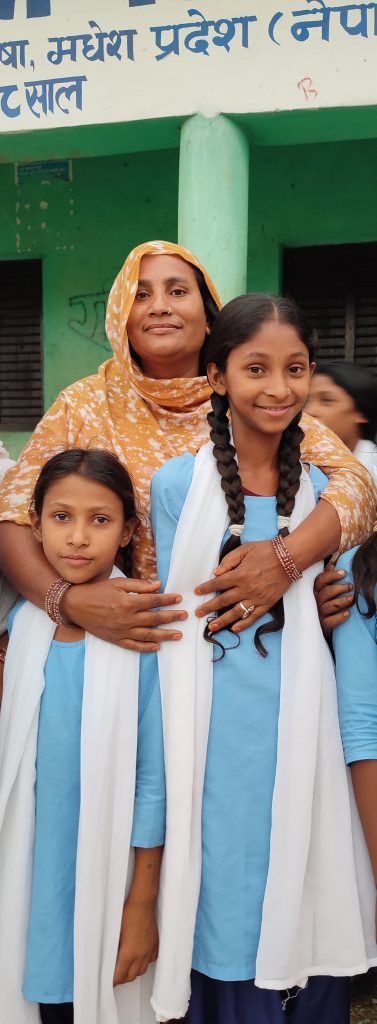In a village of Mithila Bihari Municipality of Dhanusha District, Madhesh Province, two young sisters, Sabina and Rukaiya Khatun, were trapped in a cycle of poverty and limited opportunities. Sabina Khatun was in Grade 4 when she had to transition from school life to taking care of household chores full time; her younger sister Rukaiya also had to leave formal education early on at just Grade 1 due to their family’s financial difficulties. "It was simply, beyond our means " their mother tearfully explained while trying to raise four children amidst a struggle to make ends meet. The father worked hard in his labor job every day. Their eldest brother also started working too; however, only their younger brother kept going to school and is now, in 9th grade level of education. For Sabina and Rukaiya though, their dreams of education seemed far away.

In their community, a Muslim family bound by cultural norms, sending daughters to school seemed like an unnecessary luxury. Sabina and Rukaiya were enrolled in the local Madrasa but were seldom allowed to attend. Formal education seemed out of reach—until one day, an unforeseen guest showed up at their doorstep.
Archana Kumari Mahato, a facilitator from USAID Adolescent Reproductive Health (ARH) visited them with a message filled with optimism and encouragement. She emphasized the significance of education for their daughters to the family. Recalling her own life experiences for inspiration, Archana highlighted how girls could fall behind without proper access to contemporary education. After deep conversations, Sabina and Rukaiya’s mother had a realization that would change their future.
"Why is it that it’s important to send boys to good schools but deprive girls of the same? This thought really made me feel bad but not anymore. Now I have a dream to see even my daughters highly educated, making their own decisions and building a better future," she said with pride.
Soon after, both girls were enrolled in the Udaan center, which provides non-formal education to out-of-school adolescent girls. Sabina entered Level 2, and Rukaiya, Level 1. After successfully completing their courses, the sisters were admitted to the local Shree Parwati Anarwati Tetariwati Adharbhut Vidyalaya, where they are now studying in Grade 7 and Grade 4 respectively.
This journey reflects the transformative power of education in breaking generational cycles of poverty and early marriage. As girls like Sabina and Rukaiya gain access to formal schooling, they are not only securing their futures but also inspiring their communities. Education is more than learning; it is empowerment. It gives young girls the tools to dream beyond societal norms, to challenge the status quo, and to become the decision-makers of tomorrow.
Empowering girls to seek education breaks down the obstacles that previously hindered their progress. Sabina and Rukaiya are more than students; they represent hope and showcase that with access to education girls can excel just as brilliantly, as anyone else.
